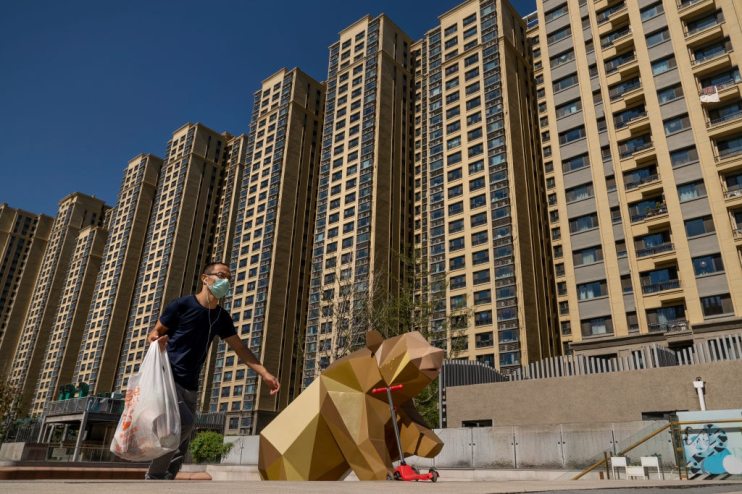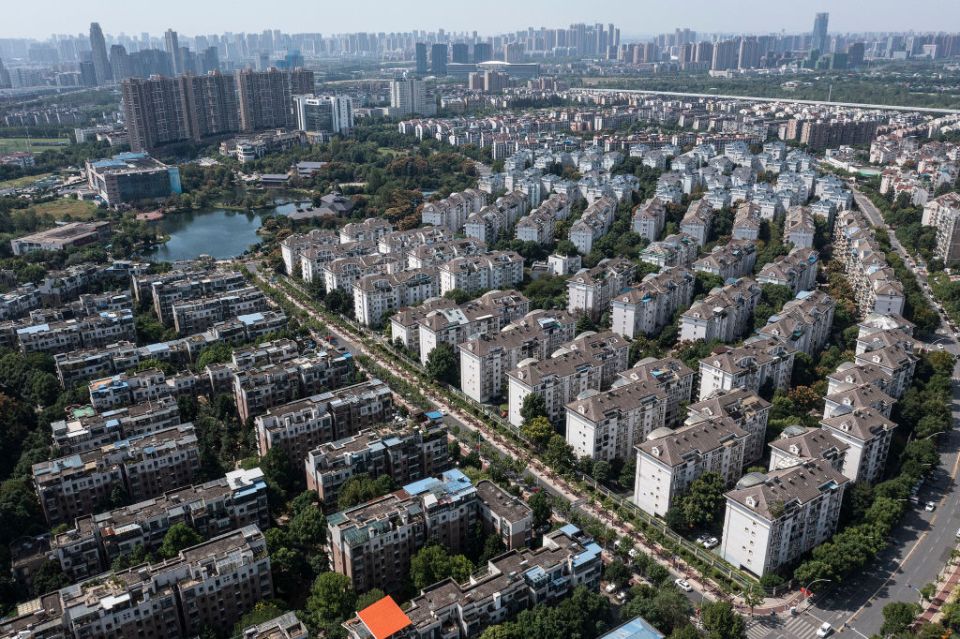Chinese economy: Country’s biggest property developer sees shares crash to record low

Chinese property giant Country Garden’s debt problems deepened after its onshore bonds were suspended, sending its shares plunging 16 per cent to record low on Monday in a fresh blow to policymakers trying shore up confidence in a stuttering economy.
Markets remain jittery as the trouble in China’s largest private property developer could have a chilling effect on homebuyers and financial institutions, further dampening the prospect of a near-term recovery in the sector and the broader economy.
A core pillar of China’s economy, the real estate sector has already seen tumbling sales, tight liquidity and a series of developer defaults since late 2021, with China Evergrande Group, the world’s most indebted developer, at the centre of the debt crisis.
Weak overseas demand, tepid domestic consumption and persistent problems in the property sector have been major factors in the economy’s struggles to mount a solid post-COVID recovery this year.
The meltdown in Country Garden comes after another weak set of data last week and raises further pressure on policymakers to restore confidence in the economy, as more private property companies are close to a tipping point if financial support doesn’t materialise soon.
Shares of Country Garden dived 16.3% to HK$0.82 by noon, dragging down the Hang Seng Mainland Properties Index .HSMPI which dropped 3.9%. The stock has lost nearly 50% so far this month.
Shares of its property management unit Country Garden Services 6098.HK fell more than 10%. According to company registry portal Qichacha, a services unit of Country Garden offloaded its 51% stake in a Wuhan-based network technology company, while chief strategic officer of Country Garden Services also resigned from the firm’s chairman.
Country Garden Services did not immediately respond to request for comment.
Country Garden’s offshore bonds also eased, with a few trading at the lower end of 6 cents on the dollar earlier. Most have since firmed slightly.
In separate filings during the weekend, the firm said it would suspend trading in 11 of its onshore bonds from Monday, in a move that traders said usually signals plans to seek repayment extensions.
In September alone, Country Garden may need to repay more than 9 billion yuan ($1.25 billion) worth of onshore bonds.
The suspension of its onshore bonds followed a report by Chinese media Yicai on Friday that the company was heading for a debt restructuring, after it missed payments of two dollar bond coupons due on Aug. 6 totalling $22.5 million.
Once considered a more financially sound developer, Country Garden’s woes are adding to spillover concerns across a property market already grappling with weak buyer demand.
“The problems in the sector have been brewing for a long time, it wiped off the wealth effect among investors and no one wanted to buy property now,” said Dickie Wong, executive director at Kingston Securities.

‘CRITICAL MOMENT’
Wong said the sector’s impact on the economy has reached a “critical moment” and that regulators should implement more policies including further cutting interest rates and reserve ratios.
State-owned China Jinmao said in a filing on Sunday it expected to post a 80% decline in net profit in the first half of this year, due to a drop in gross profit margin in some projects and decrease in land development revenue. Its Hong Kong-listed shares slumped over 7% on Monday.
Shares and bonds of Longfor Group nd Seazen Group, two remaining larger private developers that are considered financially healthy, have been under pressure since the debt troubles in Country Garden came to light. They dropped 1.7% and 5.7% respectively on Monday.
In an effort to boost market confidence, Longfor has transferred funds worth 1.7 billion yuan ahead of repayment date for an onshore bond maturing on Thursday, a source with direct knowledge said.
The Beijing-based developer recently also repaid early another HK$3.2 billion of a HK$15.3 billion five-year syndicated loan due Jan 2024, making early repayments totalling HK$7.2 billion so far, the person said, adding the firm planned to repay the remaining amount by the end of this year.
Cailianshe and Debtwire were the first to report the onshore and offshore repayments, respectively. Longfor declined to comment.
Reuters
